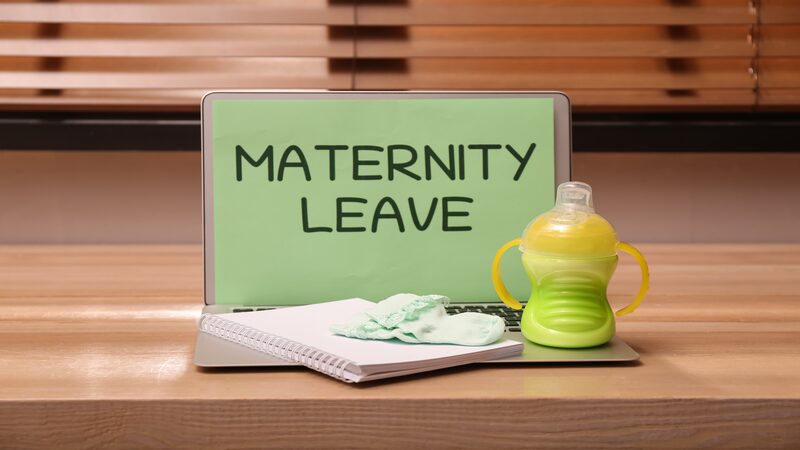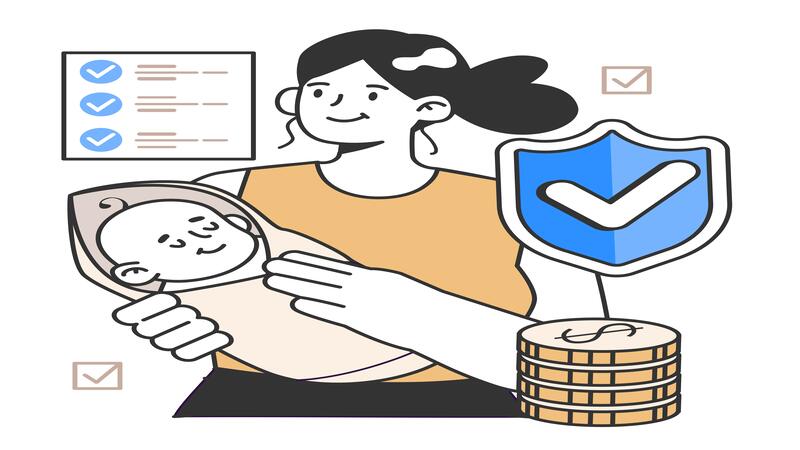 Pregnancy is a beautiful journey for a woman to be cherished. The journey from pregnancy to motherhood is a joyous yet sacred experience for a woman. However, many questions might arise for women in their workforce who are about to embark on this wonderful motherhood journey. Do I need to resign from my job? What if I cannot do the work the way I did before pregnancy? How do I take maternity leave? Will I get any maternity leave benefits? What if my company hires someone else on my behalf? What are the rights of pregnant working women?
Pregnancy is a beautiful journey for a woman to be cherished. The journey from pregnancy to motherhood is a joyous yet sacred experience for a woman. However, many questions might arise for women in their workforce who are about to embark on this wonderful motherhood journey. Do I need to resign from my job? What if I cannot do the work the way I did before pregnancy? How do I take maternity leave? Will I get any maternity leave benefits? What if my company hires someone else on my behalf? What are the rights of pregnant working women?
The shortest answer to all the questions is yes women get Maternity Benefit Act, 1961 support sanctioned by the Indian government. This maternity leave supports mothers-to-be and lets them focus on their journey to motherhood and family. Let us take a deep drive to maternity leave and its benefits.
What is the Maternity Leave Policy in India?
Maternity leave policy is a form of work-sanctioned period of absence given to working women. This work-sanctioned period can be utilized before and/or after the delivery of a baby. In, Maternity Benefit Act 1961, pregnant women are eligible to take maternity leave for up to 6 months. However, this maternity leave can be spanned before or after the delivery. During work-sanctioned periods, employers will pay women employees the entire salary (1).
Understanding Maternity Benefit Act, 1961
 The Indian government has set the groundwork under the Maternity Benefit Act, of 1961 to set eligibility criteria, requirements, and benefits for a pregnant women employee in India. With time changing, the family structure and experience of motherhood have changed, making it essential to change the Maternity Benefit Act over time. Considering the time, the Indian government made amendments in 2017 to the Maternity Benefit Act 1961. Under the updated policy, the government has increased the maternity leave period from 12 weeks to 26 weeks. However, the extended maternity leave is according to the mother’s interest and their organization. The beneficiary mother is a valuable asset to the company and will promptly respond to the deadlines, projects, and work commitments over a tired mother who will bounce back to the workplace once the maternity period ends.
The Indian government has set the groundwork under the Maternity Benefit Act, of 1961 to set eligibility criteria, requirements, and benefits for a pregnant women employee in India. With time changing, the family structure and experience of motherhood have changed, making it essential to change the Maternity Benefit Act over time. Considering the time, the Indian government made amendments in 2017 to the Maternity Benefit Act 1961. Under the updated policy, the government has increased the maternity leave period from 12 weeks to 26 weeks. However, the extended maternity leave is according to the mother’s interest and their organization. The beneficiary mother is a valuable asset to the company and will promptly respond to the deadlines, projects, and work commitments over a tired mother who will bounce back to the workplace once the maternity period ends.
What is the Revised Maternity Benefit Act, 2017
In 2017, the government revised the Maternity Benefit Act 1961 which covers paid maternity leave, work from home along with creche facilities for pregnant working women. Some of the major amendments that have been made under the Maternity Benefit Act 2017 are as follows:
- Paid Maternity Leave: Under the new amendments, paid maternity leave has been extended from 12 weeks to 26 weeks for the first two children.
- Work from Home: Under this new Act amendments, women employees are allowed to work from home during pregnancy.
- Creche Facilities: Under this new amendment, women will get creche facilities.
- Medical Termination of Pregnancy or Miscarriage: Under this new amendment, women will get six weeks of paid leave in case of medical termination of pregnancy or miscarriage.
Eligibility for Maternity Leave in India
 A woman is eligible for maternity leave in India during pregnancy if she meets the following criteria.
A woman is eligible for maternity leave in India during pregnancy if she meets the following criteria.
Employment Type: The Maternity Benefit Act 1961 has been applied to women working in the public and private sectors with 10 or more employees. However, maternity leave is not applicable for self-employed women or those who are working with organizations with less than 10 employees.
Work Requirement: Women must be working for the company or their employer for at least 12 months or 80 days before their delivery date.
Type of Motherhood: The woman either adopts a newborn baby, is pregnant, or experiencing a miscarriage.
What are the Benefits of Maternity Leave?
Maternity leave in India is a legal right provided to women who are pregnant or giving birth to a child soon. Some of the exceptional benefits of maternity leave include the following:
- Women who have undergone tubectomy surgery get two weeks of paid leave
- Women will get 26 weeks of paid leave for the first two childbirths and 12 weeks of paid leave for the third child.
- A compensatory one month of additional leave will be provided to women who are experiencing post-pregnancy complications.
In addition to above above-listed benefits, women will also get additional benefits to recover from the delivery and to nurture a born with a cute cuddler.
Employment Continuation: Women are allowed to continue their employment after maternity leave or while taking care of their newborn baby.
Health Benefits: Maternity leave also allows women to take off for physical recovery after childbirth.
Maternity Leave Duration in India
 Women employees are allowed to take maternity leave for up to 6 months. Under the Maternity Benefit Act 1961, women can avail of three to 12 months of paid leave to recover from delivery.
Women employees are allowed to take maternity leave for up to 6 months. Under the Maternity Benefit Act 1961, women can avail of three to 12 months of paid leave to recover from delivery.
Some Other Maternity Leave Rules in India
Some other maternity leave rules in India are as follows:
- Employers are required to pay full salary to the women employed on maternity leave.
- Employers are not permitted to employ a woman for at least 6 weeks after her delivery, medical termination of pregnancy, or miscarriage.
- Employers must have easy access to baby care facilities to help women restore their employment in the organization after maternity leave.
- Companies must provide necessary amenities such as comfortable seating spaces, clean restrooms, and clean drinking water for pregnant employees.
- Employers must assign easy tasks to pregnant employees or must not engage them for long working hours before their expected delivery date. It is essential for the safety of women and children.
- Additional leaves must be provided to the woman if she is unable to proceed to work after maternity leave due to complications based on mutual agreement.
- Employers are not allowed to dismiss an employee who is on maternity leave.
- A legal application or notice should be given to explorers by the women for maternity leave.
During pregnancy, women can benefit from maternity leave and enjoy a journey of motherhood peacefully. Women will get complete salary benefits and additional health benefits along with working from home unless they recover from childbirth.
FAQ’s
1. How Many Hours Can A Pregnant Woman Work A Day?
Pregnant women must work no more than 40 hours a week or 6-7 hours a day.
2. Can An Employer Terminate A Pregnant Woman?
No, according to the Maternity Benefit Act 1961, employers cannot terminate a pregnant woman because doing so can be a legal offense.
3. Can A Woman Work While Pregnant?
Yes, a woman can work while pregnant. However, during the second and third trimesters, she can take maternity leave if she is not comfortable working.
4. What Is The Law For Pregnant Employees In India?
Maternity Benefit Act 1961 is the legal law for pregnant employees in India. Under this amendment, employers provide at least 26 weeks of paid maternity leave for the first and second child.
Reference
- Government of India, Labor Commission- https://clc.gov.in/clc/acts-rules/maternity-benefit-act

